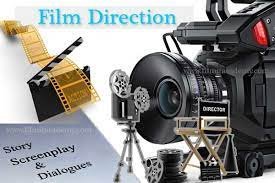What is Voice-over Artist? How Do I Start A Career in Voice-overs?
Voice-over Artist:
A voice-over artist is a professional who uses their voice to narrate, commentate or provide dialogue for various types of media productions, including commercials, documentaries, TV shows, movies, and video games. The voice-over artist is responsible for recording a script or spoken dialogue that is played over an existing visual or audio content. The voice-over artist’s work is an integral part of media production, as it provides a critical element of the production’s emotional and narrative quality.

Voice-over artists use their voices to convey emotions and to bring characters to life, creating a believable and compelling experience for the audience. The goal of the voice-over artist is to create a seamless and cohesive experience between the visual and audio components of the production.
Some of the key skills required to become a successful voice-over artist include:
- Voice Acting Skills: Voice-over artists must have excellent voice acting skills, including the ability to portray a range of emotions, inflections, and accents. They must be able to convey the tone and mood of the script accurately.
- Vocal Control: Voice-over artists must have excellent vocal control, including the ability to manipulate the pitch, tone, and rhythm of their voice. They must be able to sustain their voice over long recording sessions without losing clarity or energy.
- Breathing Techniques: Voice-over artists must have excellent breathing techniques, including the ability to take deep breaths and to control their breathing while speaking. Proper breathing techniques are essential to maintaining clarity and consistency throughout the recording process.
- Language Proficiency: Voice-over artists must be proficient in the language they are recording in, including proper pronunciation and enunciation. They must be able to speak clearly and effectively without any distractions.
- Technical Skills: Voice-over artists must have a good understanding of recording equipment and software, including microphones, mixers, and digital audio workstations. They must be able to work with sound engineers to achieve the desired audio quality for their recordings.
Voice-over artists may work in a variety of settings, including recording studios, production houses, or from their home studios. Some of the common types of voice-over work include:

- Commercials: Voice-over artists may provide voiceovers for TV or radio commercials. This type of work requires a clear and energetic voice to grab the audience’s attention.
- Narration: Voice-over artists may provide narration for documentaries or educational videos. This type of work requires a clear and authoritative voice to convey information and facts.
- Animation and Video Games: Voice-over artists may provide voiceovers for animated TV shows or movies or video games. This type of work requires the artist to create unique and memorable characters with their voice acting.
- E-Learning: Voice-over artists may provide voiceovers for e-learning courses or training videos. This type of work requires a clear and professional voice to deliver information in a concise and engaging manner.
The Benefits of Being a Voice-over Artist:
- Creative Freedom: Voice-over artists have the creative freedom to explore different characters and emotions through their voice acting. This can be a fulfilling and enjoyable experience for those with a passion for acting.
- Flexibility: Voice-over artists have the flexibility to work from home or to travel to recording studios. This flexibility can be ideal for those who want to balance their work and personal life.
- Variety: Voice-over artists can work on a variety of projects, from commercials to animation, providing them with the opportunity to explore different genres and styles.
- Job Opportunities: Voice-over artists are in high demand in the media and entertainment industry, providing them with a wide range of job opportunities.
In conclusion, a voice-over artist is a professional who uses their voice to narrate or provide dialogue for various types of media productions.
How Do I Start A Career in Voice-overs?
Starting a career in voice-overs can be an exciting and rewarding endeavor for individuals with a passion for acting, voice acting, and storytelling. However, breaking into the industry can be challenging, especially for those without any prior experience. Here are some steps to help you start a career in voice-overs:

- Develop Your Voice: The first step to starting a career in voice-overs is to develop your voice. This includes working on your enunciation, pronunciation, and breathing techniques. Practice reading scripts aloud, experimenting with different voices and accents, and recording yourself to improve your skills.
- Invest in Good Equipment: Investing in good recording equipment is essential for anyone looking to start a career in voice-overs. You will need a high-quality microphone, recording software, and a quiet and acoustically treated space to record your voice. A basic home studio setup can cost a few hundred dollars, but it can help you create professional-quality recordings.
- Get Training: Voice-over training can be valuable for anyone looking to start a career in voice-overs. There are many workshops, courses, and classes available online or in-person that can help you develop your skills, learn the basics of the industry, and connect with other professionals.
- Create a Demo Reel: A demo reel is a recording of your voice that showcases your range of skills and abilities. A demo reel is essential for anyone looking to break into the industry, as it serves as a sample of your work and can help you land jobs. Your demo reel should be professionally produced and include a variety of voice-over styles and genres.
- Join Online Marketplaces: There are many online marketplaces that connect voice-over artists with clients looking for their services. Websites like Voices.com, Voice123.com, and Bodalgo.com are just a few examples of platforms where you can create a profile, upload your demo reel, and start bidding on voice-over jobs.
- Build a Network: Networking is an essential part of any career, and voice-overs are no exception. Attend industry events, join social media groups, and connect with other professionals in the industry. Building relationships with producers, directors, and casting directors can help you land jobs and grow your career.
- Be Persistent: Breaking into the voice-over industry can take time, effort, and persistence. Don’t be discouraged by rejection, keep practicing, and continue to improve your skills. With dedication and hard work, you can build a successful career in voice-overs.

In conclusion, starting a career in voice-overs requires developing your voice, investing in good equipment, getting training, creating a demo reel, joining online marketplaces, building a network, and being persistent. With these steps, you can break into the industry and start building a successful career as a voice-over artist.








